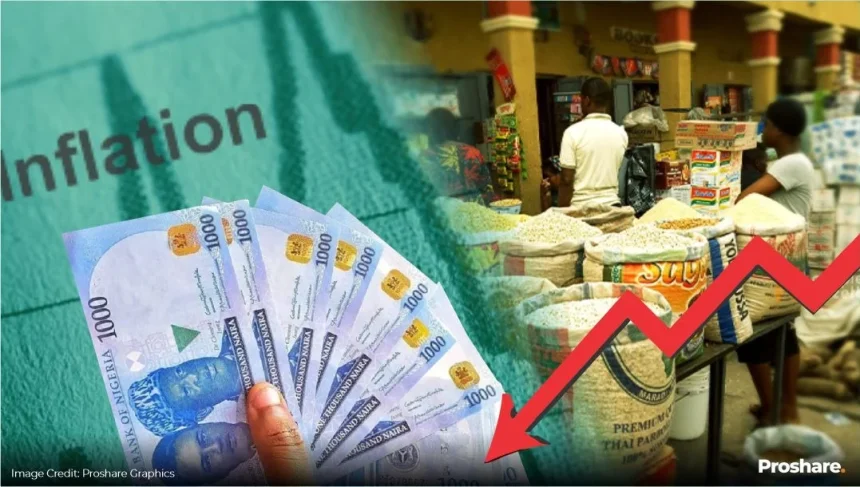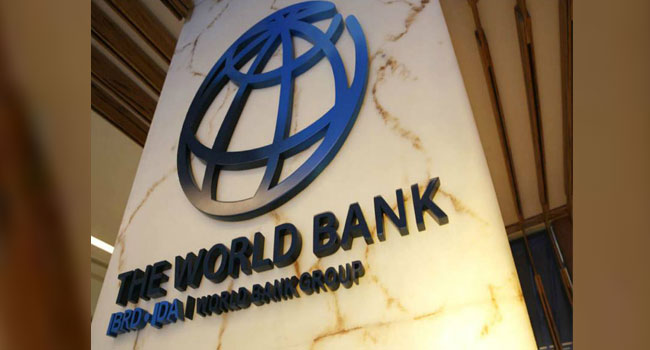In Nigeria’s turbulent oil and gas sector, where power struggles often spill into the public domain, the confrontation between the Dangote Petroleum Refinery and the Petroleum and Natural Gas Senior Staff Association of Nigeria (PENGASSAN) has erupted into one of the most dramatic corporate-labor disputes in recent memory. At the center of the storm is a controversial directive issued by PENGASSAN, instructing its branches across several major oil companies to cut off crude oil and gas supplies to the newly commissioned Dangote Refinery — a move that the management of the refinery has described as “lawless, criminal, reckless, and an act of economic sabotage against the Nigerian state and its people.”
This clash, which came to light after PENGASSAN’s September 26, 2025 memo surfaced, is more than just a labor dispute. It is a collision of interests between a union known for wielding immense influence in Nigeria’s petroleum industry and the continent’s largest refinery, built by Africa’s richest man, Aliko Dangote, and seen by many as a strategic national asset. The unfolding drama raises urgent questions: Who truly benefits from this confrontation? What does it mean for Nigerians already struggling with economic hardship? And how will this battle shape the future of Nigeria’s oil industry and foreign investment climate?
The Directive That Sparked the Storm
According to the document issued by PENGASSAN on September 26, the association directed its members in several branches — including TotalEnergies E&P, Seplat Producing, Renaissance, Chevron, Oando, Shell Nigeria Gas, and NGIC — to take immediate steps to cut off the supply of both crude oil and gas to the Dangote Refinery. The language of the directive was unambiguous and urgent. It ordered branch leaders to halt all crude loading operations bound for the refinery, shut valves on supply pipelines, and ensure that no vessels headed to the facility could proceed.
The directive went further by instructing the chairman of PENGASSAN’s NGIC branch to take personal responsibility for ensuring that gas supplies to Dangote Refinery were terminated without delay. It concluded with an order for all branch chairmen to report promptly on their progress in enforcing the decision.
To many observers, the directive amounted to a de facto shutdown order on the refinery’s operations. Coming just as Dangote’s facility had begun ramping up production to meet domestic demand for petrol, diesel, aviation fuel, kerosene, and cooking gas, the timing could not have been more explosive.
Dangote’s Explosive Response
The Dangote Group’s management wasted no time in responding. In a strongly worded statement dated September 27, 2025, the refinery condemned the union’s action as “a shocking display of lawlessness and criminality” that had no basis in Nigerian law.
“There is absolutely no law that gives PENGASSAN the right to direct its branches to cut off gas and crude oil supplies to Dangote Refinery,” the statement declared. “Those supply contracts were not entered into with PENGASSAN; they were entered into by Dangote Refinery with third-party vendors and suppliers. PENGASSAN has no right whatsoever to interfere with the performance of those contracts.”
The refinery accused the union of abandoning the rule of law and adopting mob tactics that threatened not only the business interests of Dangote Group but also the stability of Nigeria’s energy supply chain. It pointed out the contradiction between PENGASSAN’s press release issued earlier the same day, in which the union had pledged to take legal action against Dangote Refinery, and its subsequent resort to what the company described as “anarchic and criminal disruption.”
“This is a complete disavowal of PENGASSAN’s own commitment to pursue legal remedies. Instead, the Association has chosen to walk the path of anarchy, mayhem, and economic sabotage,” the management stated.
Economic Sabotage or Legitimate Protest?
At the heart of the dispute lies a fundamental question: does PENGASSAN’s directive represent a legitimate exercise of labor power in defense of its members’ interests, or is it an unlawful assault on a critical private enterprise with devastating consequences for the Nigerian economy?
Dangote Refinery’s management framed the matter starkly. By attempting to halt the supply of petroleum products, the refinery argued, PENGASSAN was in effect threatening to plunge millions of Nigerians into renewed hardship. The refinery produces petrol, diesel, kerosene, aviation fuel, and cooking gas — products that power homes, transport, industries, and the aviation sector. Cutting off these supplies would trigger fuel shortages, price spikes, and social unrest.
“In what circumstance would it be justified for PENGASSAN to introduce insufferable hardship into the living conditions of Nigerians?” the statement asked. “None that we can see. This is sabotage, pure and simple.”
The refinery went further, framing its own operations as a matter of national pride and strategic importance. As Africa’s largest single-train refinery, with the capacity to process 650,000 barrels per day, the facility is not only a linchpin in Nigeria’s quest for energy independence but also one of the largest contributors to government revenue through taxes and levies. Any disruption to its operations, Dangote argued, would constitute a national embarrassment and a disincentive to foreign investors.
The Wider Implications for Nigeria
This confrontation has implications that stretch far beyond Dangote Group and PENGASSAN. For decades, Nigeria’s oil and gas industry has been marred by corruption, inefficiency, and recurring labor disputes that often cripple production. Successive governments have failed to revive the country’s moribund state-owned refineries, leaving the nation dependent on fuel imports despite being Africa’s largest crude producer.
Dangote’s refinery, financed through billions of dollars in private investment, was seen as a game-changer. Its commissioning was hailed as a milestone that would end Nigeria’s dependence on imported petroleum products, save scarce foreign exchange, and stabilize local fuel prices.
If PENGASSAN succeeds in disrupting its operations, analysts warn, the consequences will be dire. Investors who have been cautiously watching Nigeria’s reform efforts under President Bola Tinubu would interpret the chaos as evidence that the country remains hostile to private investment. Multinationals considering entry into Nigeria’s oil and gas downstream sector could pull back, and the fragile gains of currency stability and reduced inflation in 2025 could be reversed by new supply shocks.
A Union Known for Muscle
PENGASSAN is no ordinary labor union. With thousands of senior staff in Nigeria’s oil and gas industry as members, it has historically wielded enormous influence. Strikes and directives from the union have in the past shut down oil production and crippled the economy. Governments and corporations alike have often found themselves forced to negotiate with the union under duress.
However, critics argue that PENGASSAN’s latest action crosses a dangerous line. By targeting a private refinery that has contractual agreements with suppliers, rather than directly negotiating with its own employers, the union risks being accused of overreach. “This is not a fight over wages or benefits for its members. It is an attempt to weaponize supply chains and disrupt an independent enterprise,” one energy analyst explained.
Legal and Security Dimensions
The Dangote management’s appeal to the Federal Government and security agencies underscores the seriousness of the situation. By describing PENGASSAN’s action as criminal conduct and economic sabotage, the refinery is laying the groundwork for potential legal action and state intervention.
Under Nigerian law, acts that intentionally disrupt economic activity on a national scale can fall under sabotage or treasonable conduct, particularly when they endanger public welfare. If the government chooses to interpret PENGASSAN’s directive in this light, union leaders could face prosecution.
Already, calls are growing for the Tinubu administration to step in. The fear is that if PENGASSAN is allowed to proceed unchecked, it could embolden other unions to adopt similar extra-legal measures, plunging Nigeria into deeper instability.
The Public Reaction
For ordinary Nigerians, the dispute is both confusing and alarming. On one hand, there is sympathy for organized labor, which has often been the voice against government excesses and corporate exploitation. On the other hand, the specter of another round of fuel scarcity, higher transport costs, and spiraling inflation is terrifying. Nigerians have lived through too many fuel crises to welcome another one.
The Dangote Refinery, despite criticisms of monopolistic tendencies, is still widely viewed as a potential savior for the local fuel market. Many Nigerians see attempts to cripple its operations as an attack on their own survival.
The Way Forward
What happens next will determine the trajectory of Nigeria’s oil and gas industry for years to come. If the government steps in decisively to restrain PENGASSAN and protect the refinery’s operations, it could reassure investors and stabilize the sector. But if the dispute drags on, with crude supplies disrupted and production halted, the economic fallout could be severe.
For PENGASSAN, the challenge is to recalibrate its strategy. If it truly believes Dangote Refinery has acted unlawfully or unfairly, the path of the courts remains open. By opting for extra-legal measures, the union risks eroding its credibility and alienating the very Nigerians it claims to represent.
For Dangote, the refinery’s management must recognize the political sensitivities of operating such a strategic asset in a country where labor unions and vested interests hold significant sway. Transparency, dialogue, and proactive engagement with stakeholders may be key to avoiding similar crises in the future.
Conclusion
The battle between Dangote Refinery and PENGASSAN is more than a labor spat. It is a struggle over the future of Nigeria’s oil sector, the rule of law, and the balance between private enterprise and organized labor. It highlights the fragility of Nigeria’s institutions and the high stakes involved in securing energy independence.
Whether framed as economic sabotage or labor activism gone too far, the incident has forced Nigerians to confront uncomfortable truths: that even the most ambitious private investments remain vulnerable to old patterns of disruption, and that until rule of law is firmly established, the country’s economic future will remain hostage to power struggles.
As the dust settles, one fact is clear — this is not just a fight between Dangote and PENGASSAN. It is a fight that touches every Nigerian household, every business, and the very credibility of Nigeria as a nation ready to do business with the world.




